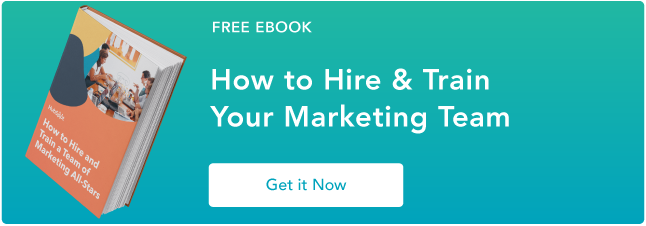A resume tells you that a candidate has the required skills and background for the open role. A cover letter confirms their interest in the position.
An interview, then, is a critical step for evaluating a candidate's critical thinking, decision-making, and interpersonal skills. Essentially, it's an opportunity to dig deeper into an interviewee's potential, and theSTAR interview methodis your shovel.
STAR Method
Star方法代表情况,任务,行动,结果。通过这种行为面试方法,雇主可以根据他们过去的经验在某些情况下在某些情况下采取行动。候选人的答案将描述一种情况,所需任务,候选人的选择行动以及该行动的结果。
To evaluate each candidate you interview fairly, you'll want to ask questions to understand how they'll perform in the role. The STAR method is a behavioral interviewing technique that can be used to gain those insights.
使用年代面试问题TAR method urge candidates to tell a linear story. From this story, interviewers can identify a sense of judgment in the candidate that might not be visible in more generic skill-based interview questions.
明星答案格式
Here's a bit more detail on how "STAR" answers should sound when listening to a candidate's answer.
S: Situation
星星面试问题的答案应首先描绘出候选人最终解决的问题或困境的图片。受访者可以解释情况是如何发生的以及还有谁参与其中。
T: Task
星星回答的“任务”组成部分阐述了候选人在这种情况下的作用。他/她负责应对这种情况?谁确定了这项任务?执行这项任务的期望结果是什么?
A: Action
The "Action" in a STAR answer reveals how the candidate actually approached that task, and the steps they took to solve the problem introduced in the "Situation" stage of their answer.
R: Results
星星答案中包含的“结果”应解释候选人行动的结果。最初的问题解决了吗?候选人的结果与预期结果有何不同?
例如,一个好的明星问题可能是“您最大的弱点是什么?”,而是一个好的明星问题,“举例说明您没有遇到的目标以及如何处理它。”
Essentially, the STAR method requires a candidate to explain a prior work situation anecdotally, provide details regarding the tasks required, what actions the candidate took to achieve those tasks, and the results of the situation.
When used properly, the STAR method is extremely effective. Here, we've created a comprehensive guide on how to use the STAR method, so you can learn how to prepare to interview a candidate, and check out examples of questions to identify your best candidate.
Here's a list of 10 popular STAR interview questions. Ideally, you'll tailor them for the specific role and candidate, but you can use these for initial inspiration.
Typical STAR Interview Questions
Sense of Judgment
These questions can help you reveal a candidate's quality of judgment and how they make decisions under complicated circumstances.- Tell me about a difficult decision you've made in the last year.
- Describe a time when you set your sights too high (or too low).
- 告诉我有一个您有多个重要项目以及如何优先级的时间。
- Can you recall an experience where you received conflicting pieces of feedback on a project? How did you address this feedback?
- Describe a time when a close colleague caused a project to suffer or fail, and how you explained this failure to the project manager.
Handling Pressure
These questions can help you reveal how well a candidate performs under various types of pressure.
- 描述您做出的不受欢迎的决定,以及如何处理它。
- Describe a stressful situation at work and how you handled it.
- 告诉我有关您不得不与非常沮丧的客户打交道的情况。
- Describe a situation where you disagreed with a superior and how this disagreement was settled.
- Tell me about a time you had to learn something you weren't familiar with very quickly.
Leadership Potential
These questions can help you reveal a candidate's leadership potential, confidence, and willingness to take the initiative on projects when they have little or no direction to start with.
- You indicated on your resume that leadership is one of your strengths. Describe an experience in which you used your leadership abilities.
- Tell me about a time when you delegated a project to others effectively.
- Can you recall a time where you had to give negative feedback to a colleague. How did you express this feedback?
- Give me an example of when you showed initiative and took the lead.
- Describe a time you had a direct report or managed a team that was being recruited to work on other projects without your consent.
Self-Awareness
这些问题可以揭示候选人对自己的优势,更重要的是弱点的自我意识。
- Tell me about a time you were able to successfully deal with a coworker who might not have personally liked you (or vice versa).
- Give me an example of a time when you tried to accomplish something and failed.
- Tell me about a time you were reprimanded or criticized for your performance.
- Tell me about a project that wasn't going to meet its deadline and how you minimized or confronted the consequences.
- Tell me about a time you felt you weren't being listened to, and how you made you presence or opinion known to your colleagues.
How to Format Your Interview for the STAR Approach
To successfully incorporate STAR questions into your interview strategy, there are four steps you'll need to take.
1. Make a list of role-specific STAR questions.
首先列出适用于特定候选人以前的经验,技能和特征的问题。上面的问题列表可以用作一般起点,但是要真正深入研究候选人与角色有关的特定背景,您需要适当地定制问题。
例如,“告诉我有效地委派项目的时间”很模糊,并可能导致候选人描述五年前的工作状况,那时您真的想听听她的数据相关的营销项目仅最后一个位置。使自己清楚,并引用特定的简历项目:“我想了解您在X公司的数字营销经理的经验。bob全站app?”
如果你使用访谈法,问什么stions that require situation-specific answers. For instance, if you want to know about a candidate's flexibility, you might ask, “Describe a time when you put your needs aside to help a co-worker understand a task. How did you assist them?”
2. Tell candidates what you're looking for in their answers.
并非所有人都同意这一步骤是必要的:有些招聘人员不愿意解释他们正在寻找特定情况的答案,以了解候选人如何处理她想要的问题。一些招聘经理认为含糊不清的好处 - 至少,您可能会从候选人那里得到坦率的答案。
But other experts, like Todd Lombardi, a college relations specialist at Kulicke & Soffa Industries Inc., believes it'simportant to explainwhat he's looking for before asking a candidate any behavioral interview questions.
When伦巴第开始行为面试,他详细介绍了这一过程,告诉候选人他正在寻找特定的例子,人的名字,日期和结果。
Lombardispeaks with candidates aboutprojects they've worked on, how their role has evolved, how they've handled deadlines or unexpected situations, and how they've coped with adversity. He asks these questions because, "Everyone's got that kind of experience."
If you don't explain what you're looking for upfront, you risk receiving an incomplete answer or confusing the candidate. If the candidate answers insufficiently, perhaps you want to offer her an opportunity to modify her answer. Say: "I'm looking for details about a specific example -- you've explained the situation and tasks required, but I'd still like to know what steps you took to complete the tasks, and what results you got from the project."
3. Know what you're looking for.
明星访谈问题对于确定候选人的主要特征特别有用,或者在您的简历中看到更多的潜在问题。
For instance, let's say you ask, "Give me a specific example of a time when you sold your supervisor or professor on an idea or concept. How did you convince them? What was the result?"
When you ask STAR questions, you should know what you're looking for in a candidate's answer. In the question above, it shouldn't matter too much what the candidate's idea was -- instead, you're looking for the candidate to display a high level of assertiveness, confidence, and good decision-making skills.
无论候选人如何回答,请注意候选人如何证明或未证明这些特征。它们比情况更重要。
如果你不确定你正在寻找什么哟u ask a candidate STAR questions, consider what's missing from the candidate's resume. If the candidate's resume reflects skills tied to analytics, but you're fearful the candidate lacks the creativity necessary for the role, ask a question regarding innovation. When the candidate answers, take note of whether she mentions original ideas she offered. Essentially, work backward -- consider what information you want from the candidate, and then figure out how to phrase it in an appropriate behavioral interview question.
Sara DeBrule, our Global Marketing Recruitment Team Lead at HubSpot, recommends working to identify "the candidates who have taken the time to understand the business challenge, and are able to position themselves as the solution."
DeBrule explains, "It's obvious when a candidate has read up on the STAR interviewing technique because they are able to tell a linear story about the ways they are able to successfully impact [the company] in the desired way for the role."
Even if a candidate hasn't had the exact experience necessary for the role, the applicant should still be able to draw parallels between past experiences and how those experiences would translate to future success in the role. Ultimately, DeBrule says she aims to uncover whether a candidate focuses on results, seeks out industry knowledge and trends, has influence over her coworkers in order to work as a team player, and pursues new opportunities for growth.
If you're stuck on what constitutes a good answer to a behavioral interview question, check out我们的行为访谈文章得到一些想法。
4.保持胸怀开放。
Each candidate has completely different life and work experiences, all of which contribute to unique and sometimes unexpected answers to STAR behavioral interview questions.
It's important to remain open-minded. You want to build a team with diverse employees, each of whom bring new and different ideas and past experiences to the table -- if a candidate answers differently than you'd expected them to, it doesn't mean they've answered wrong.
"At the end of the day, I'm trying to understand a candidate's ability to tell their story of impact -- how they've impacted businesses in the past, and how they're going to impact [our company] in the future," Sara DeBrule explains.
Remember, these STAR interview method questions should be used sparingly and wisely -- asking ten in a row will only confuse you and your candidate. Instead, you should mix behavioral interview questions with more standard interview questions, especially during a first-round interview. Allow a candidate to warm up with a few standard questions, before diving into any STAR behavioral ones.
在下一次面试中使用这些星星采访问题中的一些,以确保您为候选人提供尽可能多的机会,以证明她如何帮助您的公司成功。bob全站app希望行为面试策略能够帮助您与求职者进行坦率,有见地和有用的对话。
Originally published Dec 9, 2018 9:07:00 PM, updated January 22 2019
Topics:
Interviews别忘了分享这篇文章!
相关文章

Expand Offer
社交媒体内容日历模板
Get it now
![→ Click here to download our free guide to hiring and training a team of all-stars [Free Ebook].](https://no-cache.hubspot.com/cta/default/53/c42148d7-13dd-4c38-b907-cff1602ee62f.png)

